How to Open Folders in CMD
Using File Explorer
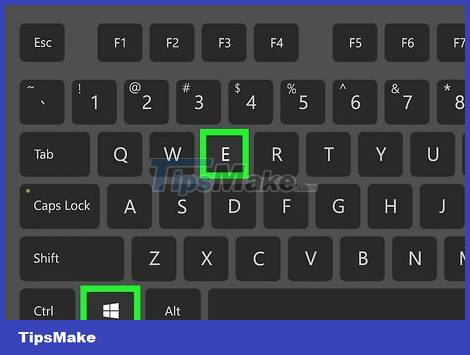
Press ⊞ Win+E to open File Explorer. File Explorer is the default file browser on Windows. To open File Explorer, press the Windows key and "E" at the same time.

Go to the folder you want to open in Command Prompt. Use File Explorer to browse for the folder you want to open. Then click on the folder to open it.
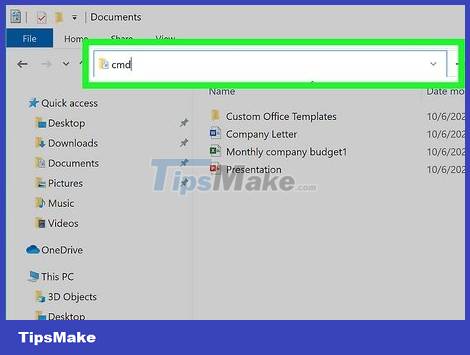
Type cmd in the address bar and press ↵ Enter. A new Command Prompt window will open in the folder you have open in File Explorer.
Using File Explorer's context menu

Press ⊞ Win+E to open File Explorer. File Explorer is the default file browser on Windows. To open File Explorer, press the Windows key and "E" at the same time.

Navigate to the folder you want to open in Command Prompt. Use the left pane of File Explorer and go to the folder you want to open. Then click on the folder to open it.
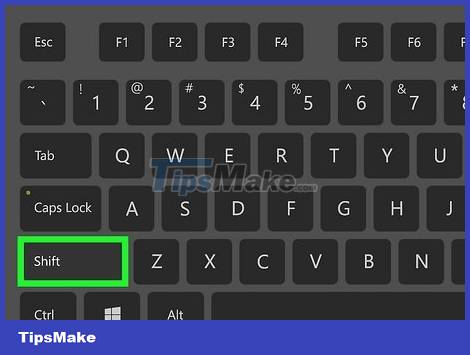
Hold down the ⇧ Shift key and right-click any space in the folder. The context menu will appear next to the mouse pointer.
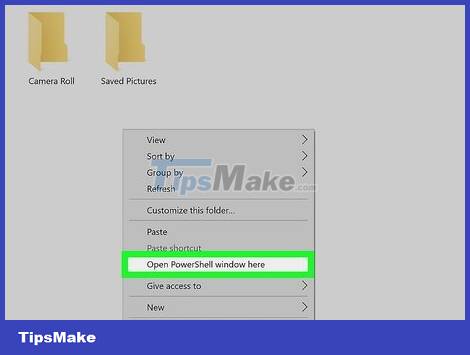
Click Open command window here . Command Prompt will open in the current directory.
On later versions of Windows, the above option has changed to Open PowerShell window here. PowerShell is a more advanced version of Command Prompt. Most commands that work in Command Prompt will also work in PowerShell.
Using Command Prompt commands
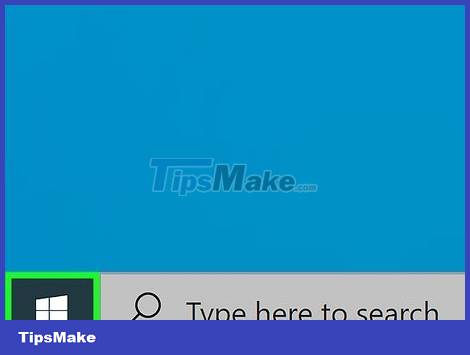
Click the Windows Start button. This button has the Windows logo icon and is located in the lower left corner by default. The Windows Start menu will open.

Enter CMD. Command Prompt will appear in the Windows Start menu.
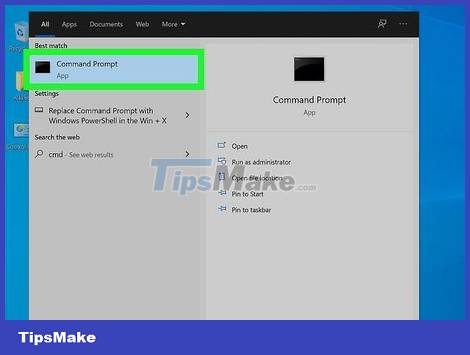
Click the Command Prompt icon. The program has a black screen icon with a white text cursor. Click the Command Prompt icon in the Windows Start menu to open the Command Prompt.
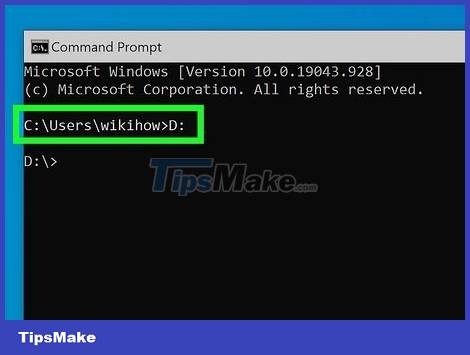
Enter the drive containing the folder you want to open and press ↵ Enter. If the folder you want to open is in a different drive than the one on which the Windows operating system is installed, you need to convert to that drive in the Command Prompt. To do this, type the letter of the drive letter with a colon (for example, "D:") and then press Enter.
You only need to do this step if the folder to open is not on the drive on which Windows is installed (usually the "C:" drive).

Enter cd along with the distance. The "cd" command is used to change directories in the Windows Command Prompt. Type "cd" with the space, but don't rush to press Enter.
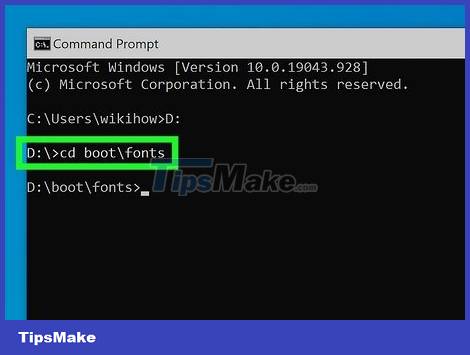
Type the folder address followed by a space and then press ↵ Enter. You need to include all folders and subfolders inside by adding a backslash ("") in front of each folder name. For example, "cd UsersusernameDocuments."
If you are not sure about the folder path, you can navigate to that folder on File Explorer. Next, right-click the address bar at the top and click Copy address as text. You can then press Ctrl + V to paste the directory path directly after the "cd" command in the Command Prompt.
 How to Connect Two Monitors to a Laptop
How to Connect Two Monitors to a Laptop How to enable Night Light mode to limit blue light on Chromebooks
How to enable Night Light mode to limit blue light on Chromebooks Microsoft will allow Domain Controllers to be allowed to have an internet connection
Microsoft will allow Domain Controllers to be allowed to have an internet connection Admin was able to install Windows Server to automatically update .NET
Admin was able to install Windows Server to automatically update .NET How to use EarTrumpet to adjust the volume of Windows 11
How to use EarTrumpet to adjust the volume of Windows 11 Here are the 3 fastest ways to put your computer to sleep
Here are the 3 fastest ways to put your computer to sleep